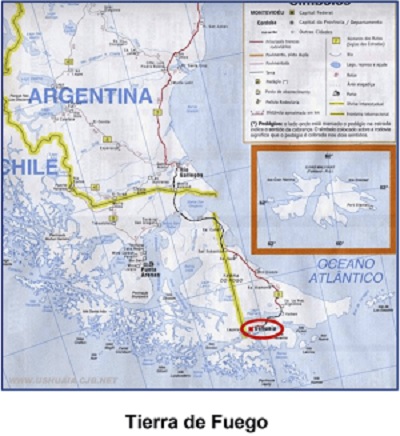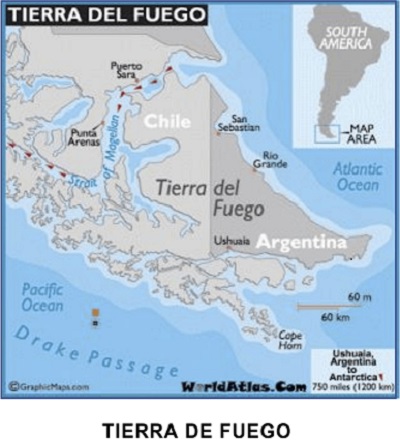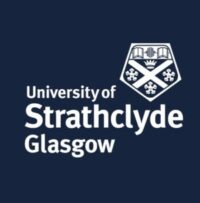The COVID-19 Island Insights Series is an initiative led by the Strathclyde Centre for Environmental Law & Governance (SCELG) and the Institute of Island Studies (IIS) at the University of Prince Edward Island (UPEI) in collaboration with Island Innovation. The series aims to bring together critical assessments of how specific islands around the world have performed during the COVID-19 pandemic and the extent to which their recovery plans are able to promote long term resilience and sustainability.
This week we are focusing on the Isla Grande de Tierra del Fuego that hosts two separate jurisdictions: a Chilean one and an Argentinian one. The pieces on Tierra del Fuego, Argentina (Spanish and English) are by Peter van Aert and the piece on Tierra del Fuego, Chile (in Spanish), is authored by Alejandro Nuñez Guerrero.
These last two Insights of the COVID-19 Island Insights Series provide a snapshot of the Isla Grande de Tierra del Fuego that hosts two separate jurisdictions: a Chilean one and an Argentinian one. Both sides confirmed their first Covid-19 cases in early March 2020.
On the Chilean side, most decisions concerning the management of the pandemic were taken by the central government. During the first wave, lockdown measures were imposed, travelling to and from the island was strongly limited, and schools were moved to online teaching. After an apparently covid-free stage (May-July 2020), the pandemic hit again on the Chilean side of the island for a second wave.
In 2021, the prices of some products increased, many economic activities closed down, and some economic and social issues appeared more starkly. Among them, the absence of internet connection in many parts of the island and the struggles, of a part of the population, to obtain computers and support younger students. Amid these struggles, efforts to tackle climate change and reach the SDGs seem more difficult to obtain results because of the lack of economic resources and for the current “covid fatigue” of the population.
On the Argentinian side, the first 2020 severe measures were taken by the Provincial government, which allowed for a quick and tailored response: lockdown style restrictions were imposed, and tourists were repatriated, while access to the island was allowed only for people returning home. About a year after, the second wave hit Argentina again, including Tierra del Fuego, with new national and provincial restrictions being imposed.
The tourism sector was the one hit the most. Because of its substantial prominence in the local economy, it had a trickle-down effect on many other economic activities that relied on tourists’ consumption and, consequently, on the employment rate. However, Tierra del Fuego hosts many state employees that did not lose their jobs and experienced a fast recovery in the production of goods to be used at the national level. The national government provided recovery funds to assist the tourist sector and, most importantly, to create new health facilities that allowed for local management of COVID-19 cases.
The COVID-19 Island Insights Series will lead to a series of “thematic primers” aimed at assisting policy makers and wider island related stakeholders to encourage islands to move to a more resilient and sustainable future.
List of islands covered by the COVID-19 Island Insights Series (list subject to change):
- Åland Islands (Finland)
- Barbados
- Croatian Islands
- Egadi Islands (Italy)
- Grenada
- Guam (USA)
- Hawai’i (USA)
- Iceland
- Jamaica
- Lesvos (Greece)
- Malta
- Mauritius
- New Zealand
- Newfoundland (Canada)
- Okinawa (Japan)
- Prince Edward Island (Canada)
- Saint Helena (UK)
- Seychelles
- Shetland Islands, Scotland (UK)
- Solomon Islands
- Trinidad & Tobago
Click here to view the Strathclyde Centre for Environmental Law & Governance (SCELG) website.
Click here to view the University of Prince Edward Island (UPEI) website.
Click here to view the University of Strathclyde website.

Island Innovation is a social enterprise and digital media company at the intersection of sustainable development and communications, offering specialised services across various sectors. We bring together the private sector, government, utilities, NGOs and universities to advance innovation for sustainability and prosperity in islands worldwide.



















